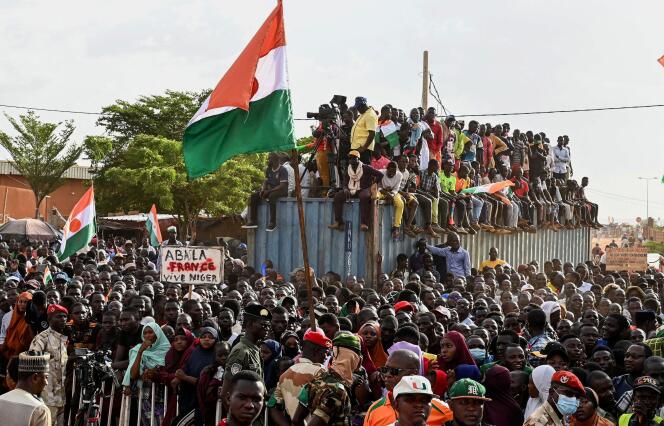


It took only a few words on Sunday, September 24, for French President Emmanuel Macron to announce during an interview devoted to purchasing power on French television that he had decided to repatriate the French ambassador in Niamey, Sylvain Itté, to Paris and to withdraw 1,500 French troops deployed in Niger to fight terrorism. The decision came two months after a military coup in the Sahelian country, ending weeks of tensions with the junta and a situation that had become untenable for Paris.
"France has decided to withdraw its ambassador. In the next hours, our ambassador and many diplomats will return to France. And we are ending our military cooperation with the de facto authorities in Niger because they no longer want to fight terrorism," Macron told TF1 and France 2. French soldiers in Niger "will return in an orderly fashion over the coming weeks and months," Macron added, specifying that their return was to take place before "the end of the year." His words were immediately greeted with joy in Niamey. Thousands spontaneously rallied at a traffic circle on a road leading to the main military base housing French soldiers.
Announced laconically, Macron's double U-turn comes after France had refused to give in to demands formulated by the junta led by General Abdourahamane Tiani, the man behind the fall of Nigerien President Mohamed Bazoum. Macron's staff told Le Monde the decisions had been taken in coordination with Bazoum, who has not resigned even though he and his family have been under house arrest since the coup, and with leaders of the Economic Community of West African States (ECOWAS).
While Macron had made the deposed president's approval a prerequisite to any military withdrawal, the Elysée said he and the Nigerien head of state had spoken again on Sunday. "We will continue to work with ECOWAS to obtain Bazoum's release and the restoration of constitutional order," said the French presidency, which considers Bazoum the sole legitimate leader in Niger. Multiple sources said Bazoum had been overthrown because of betrayals, notably by his former mentor, Niger's ex-president Mahamadou Issoufou because he was determined to fight corruption.
The French ambassador's return does not mean diplomatic relations between Paris and Niamey are ending. However, there is no guarantee at this stage that a chargé d'affaires will be appointed, as in Mali and Burkina Faso, two countries from which France has had to withdraw troops over the past two years following coups. However, military cooperation, development aid, and budgetary assistance have been suspended. The same applies to cultural and academic exchanges due to the impossibility of issuing visas, which has provoked controversy in France.
You have 63.95% of this article left to read. The rest is for subscribers only.
